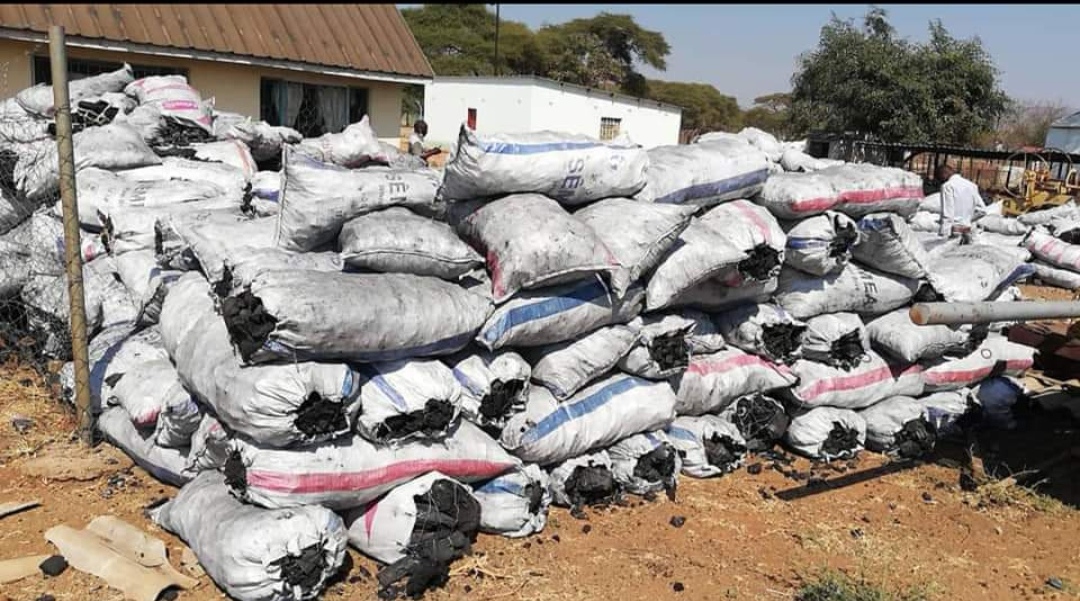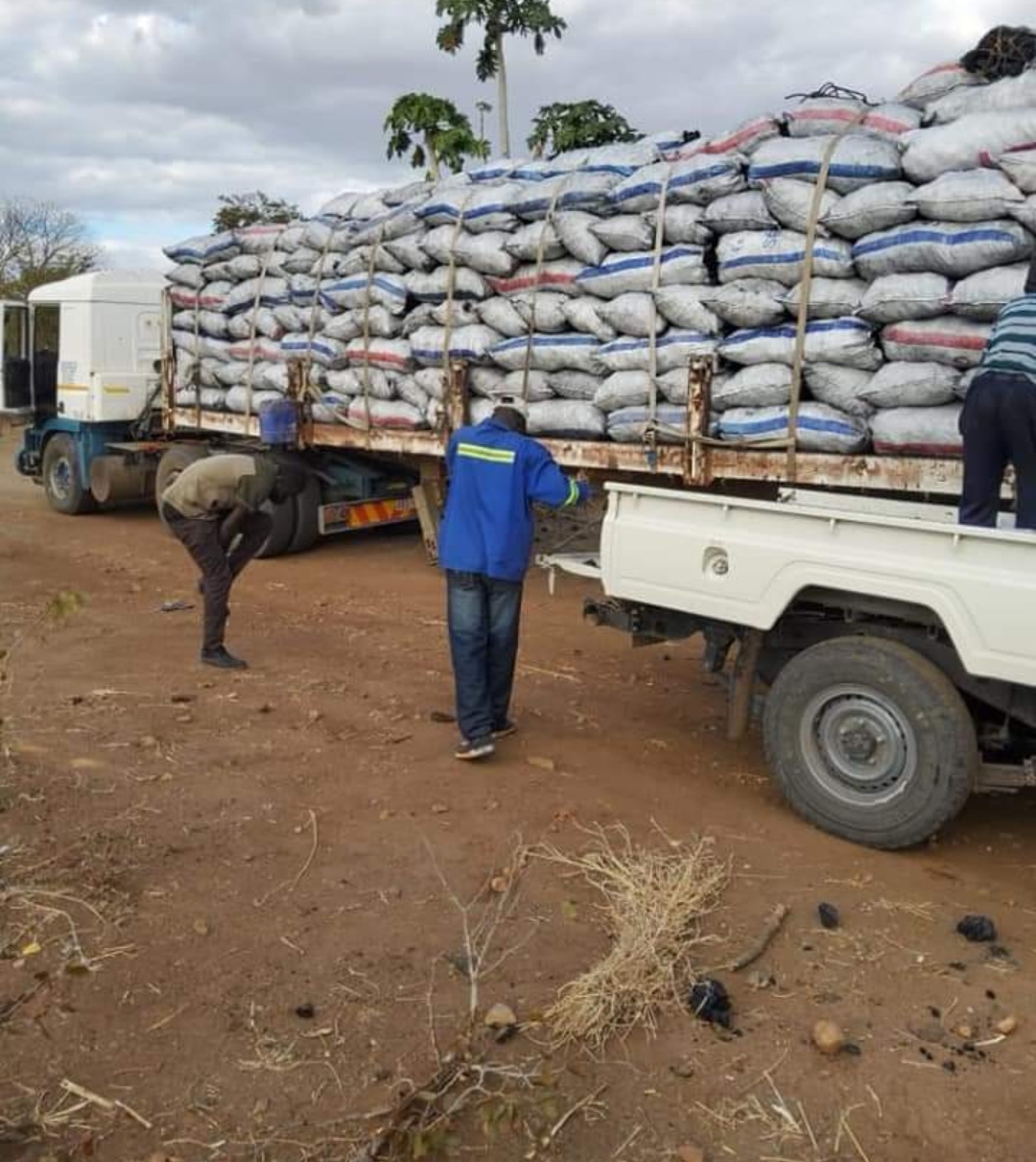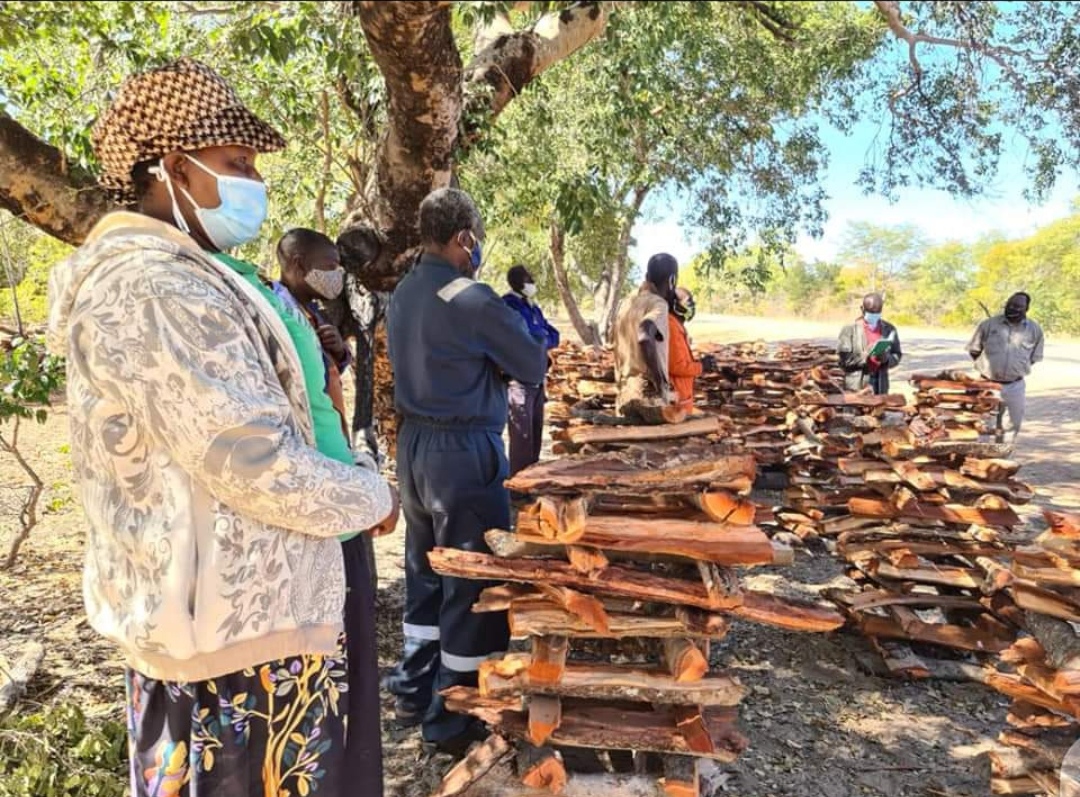BY NOKUTHABA DLAMINI
Mazia Dube’s daily routine involves delivering tonnes of charcoal at one of Hwange’s busiest truck stops and he says his workload keeps increasing.
Dube is hired by different people, who illegally obtain the charcoal from the forests in Hwange’s Madumabisa village, to drop the loads at the Truck Inn Stop in the Cinderella area from where it is loaded to Bulawayo bound haulage trucks.
The demand for charcoal among households in Zimbabwe’s urban areas has been rising sharply due to rolling power cuts as a result of depressed electricity generation and the country’s inability to import enough power to cover for the deficit.
“I make a profit of US$0.50 for every bag of charcoal I deliver at the truck stop,” Dube said.
“A bag of charcoal costs US$7.”
He said on a good day he can make as much as US$100 from the charcoal deliveries with the business reaching its peak during winter.
Experts say high electricity costs coupled with frequent power cuts in Zimbabwe has pushed the demand for firewood for cooking, lighting and heating.
This has accelerated the destruction of Zimbabwe’s fragile forests as the country loses about 60 million trees – some 33 000 hectares of forests – every year.

Stacks of chocoal headed for the market. Pic: Forestry Commission
Mthelisi Sebele, an ecologist with the Forestry Commission in Matabeleland North, said the illegal cutting down of trees for firewood and charcoal had resulted in an alarming loss of indigenous forests and land degradation, especially in districts such as Hwange.
The Forestry Commission is a government body mandated to protect state forests and it says the illegal charcoal industry has become a huge source of concern.
“Throughout the province, Hwange has become a hotspot, especially in areas such as Madumabisa Lubangwe and Matetsi up to Dete along the Nyantue River and Dinde,” Sebele said.
“The problem has been proving difficult to control since it started from Hwange around Deka Drum and spread in other areas from 2000 to 2010.
“It has even spread to Victoria Falls and other areas controlled by the Zimbabwe Parks and Wildlife Management Authority, rural district councils and the Environmental Management Agency.
“Through our investigations we have established that there is high demand for charcoal, especially in Bulawayo and Hwange is the supplier,”
Charcoal – favoured for burning hotter and longer than wood – is made from heating wood without oxygen.
The practice is taking root across swathes of the country, dominated by native forest hardwoods such as the mopane hardwood species, which takes over a decade to fully grow and adapt according to research.
Last year, 158 people from Matabeleland North and Bulawayo were arrested and fined for trading in charcoal with over two tonnes of charcoal confiscated by the authorities.
Sebele said those arrested during the clampdown included people who poached wood for carvings, which are also big businesses in tourist areas such as Victoria Falls.
“In Hwange we confiscated 505 bags of charcoal and made 20 arrests and in Dete we repossessed 690 bags and arrested 50 people,” he added.
“In Lupane seven bags were also confiscated and 39 people got arrested for that offence while in Bulawayo and Victoria Falls a total of 69 people were arrested and 25 bags of charcoal were confiscated,”
“Our concern is that with the way the cutting down of trees is done it means that we will lose out as a country on farming, timber production, community livelihoods, climate change, soil proliferation and deficit of wood fibre production.”

A truck loaded with chacoal. Pic: Forestry Commission
The Forestry Commission is pushing for tighter laws to curb the practice and is proposing mandatory jail terms instead of fines, which are proving to be not deterrent enough.
Currently anyone caught selling firewood and charcoal can be fined US $59 or sentenced to a year in jail.
Trymore Ndolo, a Victoria Falls Combined Residents Association member, feels the illegal cutting down of trees to make charcoal or for firewood is linked to growing poverty in communities.
“Here in ward 11 we have over 1000 people who have no access to electricity in their homes and some of them are poor and unemployed,” Ndolo said.
“So sending them to jail or imposing a stiff fine is unjustified.
“Authorities must actually set up a hub where people can sell the firewood at a very affordable price while on the other hand they work on making licensing accessible and easier because as we protect trees.
“We should have answers to people’s daily needs.”
A new report by the Intergovernmental Science-Policy Platform on Biodiversity and Ecosystem Services (IPBES) says over 2.4 billion people (one in three) globally depend on firewood for cooking.
It says an estimated 12% of wild tree species is threatened by unsustainable logging “with declines in large-bodied species that have low natural rates of increase also linked to hunting pressure.”.
“Seventy percent of the world’s poor are directly dependent on wild species,” IPBES noted in its July report.
“One in five people rely on wild plants, algae and fungi for their food and income; 2.4 billion rely on fuel wood for cooking and about 90% of the 120 million people working in capture fisheries are supported by small-scale fishing.
“But the regular use of wild species is extremely important not only in the Global South, from the fish that we eat, to medicines, cosmetics, decoration and recreation, wild species’ use is much more prevalent than most people realise.”
In response to the emerging deforestation problem in Matebeleland North , the Victoria Falls Wildlife Trust (VFWT), a not for profit organisation operating in the region, has distributed over 4000 eco-friendly rocket stoves to communities.
“We have distributed 4361 of those stoves in 11 wards in and around Victoria Falls,” VFWT’s community development coordinator Edith January told The Standard.
“The aim is to reduce deforestation and reduce carbon emissions produced through burning wood and we aim to keep distributing more so that we protect the environment while being aware of the daily needs of those communities.”
Wood fuels represent significant economic value in many countries, accounting for approximately US$ 6 billion for the whole of Africa, according to the United Nations’ Food and Agriculture Organisation.
More than US$1 billion of this amount was made up by charcoal. – The Standard

 Slider3 years ago
Slider3 years ago
 National4 years ago
National4 years ago
 Tourism and Environment4 years ago
Tourism and Environment4 years ago
 Opinion4 years ago
Opinion4 years ago
 Special reports4 years ago
Special reports4 years ago
 National4 years ago
National4 years ago
 National3 years ago
National3 years ago
 National3 years ago
National3 years ago





